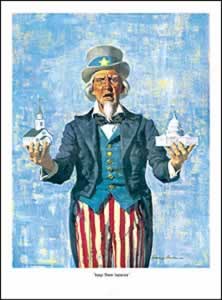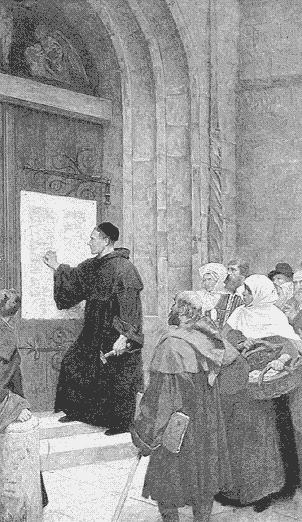The Work-Free Sunday Movement Getting Organized in Europe
A “Work-Free Sunday” and the need of legislation to enforce the concept was the topic of a conference held this week in Brussels, Belgium. Last year the European Parliament rejected such an attempt. This conference comes as a response. It is but the beginning of a more strategic movement to revitalize the discussion for a work-free Sunday. Daniela Weichhold attended the conference and reports that László Andor, the new Commissioner for Employment and Social Affairs, saw the conference as " a new chapter." As Weichhold points out the EU Commission can still launch the legislative procedure even if it fails. There is now a serious attempt to convince the hearts and minds of Europeans that Sunday legislation is necessary for the health of all citizens.
The conference was organized by a number of trade unions, political parties, Roman Catholic Bishops, and Protestant Churches including the Baptist, Methodist, Church of England, and Evangelical Lutherans...
Karel Nowak, Secretary General of the International Association for the Defence of Religious Liberty, was also present at the Conference. He raised the question how this new proposed legislation would protect minorities who keep another day than Sunday. As Weichhold noted he didn't get an answer.
"While we strongly support the right to rest," states John Graz the director of the public affairs and religious liberty department at the General Conference, "we believe the individual should be permitted to choose which days to rest on - not the state in cooperation with churches. We view this movement as a serious threat to religious freedom."
"Seventh-day Adventists have long encouraged members to keep a weekly rest day – as enjoined by the Ten Commandments – the Sabbath (which is Saturday or sábado in Spanish) and practiced by the early Christian Church,” states Barry Bussey who represents the Adventist Church to the US Government. “Throughout history we have seen these attempts to use state regulation to enforce a particular interpretation of the Sabbath Commandment. That is not the state’s role – ultimately it will cause hardship for minority faiths that do not accept the majority’s regulation of a Sabbath or a particular day. At the same time we must recognize that there is a need for families to have a day off for recreation or spiritual welfare. It is a must – the question is whether that is the role of the state or the individual."
“We will continue to monitor the situation,” says James Standish, who heads up the UN Relations for the Adventist Church. “This is a disturbing movement. Now is the time for us as a people to share with others the importance of maintaining religious freedom for all citizens.” NARLA
skip to main |
skip to sidebar


"If ye keep my commandments, ye shall abide in my love; even as I have kept My Father's commandments and abide in His love." John 15:10.


“I see a very dark cloud on America’s horizon, and that dark cloud is coming from Rome.’’ - Charles Chiniquy (1809-1899), Fifty Years in the Church of Rome, The Wickliffe Press, Protestant Truth Society, Wickliffe Avenue, 104 Hendon Lane, Finchley, London, N3., 1885, p. 510.

"I have long been decided in opinion that a free government and the Roman Catholick religion can never exist together in any nation or Country." "Liberty and Popery cannot live together." - John Adams, 2nd President of the United States

"I do not like the late Resurrection of the Jesuits. They have a General, now in Russia, in correspondence with jesuits in the U.S. who are more numerous than everybody knows. Shall We not have Swarms of them here? In as many shapes and disguises as ever.... In the shape of printers, Editors, Writers, School masters, etc. If ever any Congregation of men could merit, eternal Perdition on Earth and in Hell... it is this Company of Loyola." - Thomas Jefferson, 2nd President of the United States

"It is my opinion that if the liberties of this country — the United States — are destroyed, it will be by the subtlety of the Roman Catholic Jesuit priests, for they are the most crafty, dangerous enemies to civil and religious liberty. They have instigated most of the wars in Europe."- General Marquis De Layfayette

"All worship of images and saints, is an abomination to God; it is idolatry, which is strictly forbidden in the Bible." - American lexicographer and statesman Noah Webster

"I hope that the last day is at the door. Things could not become worse than the Roman see makes it. It suppresses the commandments of God, it exalts its own commandments above God's. If this is not Antichrist, then some one else must tell what it is." - Luther's Reformatory Works," p. 280. Copenhagen: 1883.





"And the dragon was wroth with the woman, and went to make war with the remnant of her seed, which keep the commandments of God, and have the testimony of Jesus Christ." Revelation 12:17

His People will Stand Unmoved
In the midst of the time of trouble --trouble such as has not been since there was a nation-- His chosen ones will stand unmoved. Satan with all the hosts of evil cannot destroy the weakest of God's saints. Angels that excel in strength will protect them, and in their behalf Jehovah will reveal Himself as a "God of gods," able to save to the uttermost those who have put their trust in Him. PK 513
My YouTube Channels
Favorite Links
"If ye love Me, keep my commandments"

"If ye keep my commandments, ye shall abide in my love; even as I have kept My Father's commandments and abide in His love." John 15:10.
Till Heaven and Earth Pass
Think not that I am come to destroy the law or the prophets; I am not come to destroy, but to fulfill. - Matt. 5:17
For verily I say unto you, Till heaven and earth pass, one jot or one tittle shall in no wise pass from the law, till all be fulfilled. - Matt. 5:18
Whosoever therefore shall break one of these least commandments, and shall teach men so, he shall be called the least in the kingdom of heaven: but whosoever shall do and teach them, the same shall be called great in the kingdom of heaven. - Matt. 5:19
For verily I say unto you, Till heaven and earth pass, one jot or one tittle shall in no wise pass from the law, till all be fulfilled. - Matt. 5:18
Whosoever therefore shall break one of these least commandments, and shall teach men so, he shall be called the least in the kingdom of heaven: but whosoever shall do and teach them, the same shall be called great in the kingdom of heaven. - Matt. 5:19

President Lincoln's Prophecy

“I see a very dark cloud on America’s horizon, and that dark cloud is coming from Rome.’’ - Charles Chiniquy (1809-1899), Fifty Years in the Church of Rome, The Wickliffe Press, Protestant Truth Society, Wickliffe Avenue, 104 Hendon Lane, Finchley, London, N3., 1885, p. 510.
Adams on Liberty and Popery

"I have long been decided in opinion that a free government and the Roman Catholick religion can never exist together in any nation or Country." "Liberty and Popery cannot live together." - John Adams, 2nd President of the United States
Jefferson knew the Danger

"I do not like the late Resurrection of the Jesuits. They have a General, now in Russia, in correspondence with jesuits in the U.S. who are more numerous than everybody knows. Shall We not have Swarms of them here? In as many shapes and disguises as ever.... In the shape of printers, Editors, Writers, School masters, etc. If ever any Congregation of men could merit, eternal Perdition on Earth and in Hell... it is this Company of Loyola." - Thomas Jefferson, 2nd President of the United States
The French General's Prophecy

"It is my opinion that if the liberties of this country — the United States — are destroyed, it will be by the subtlety of the Roman Catholic Jesuit priests, for they are the most crafty, dangerous enemies to civil and religious liberty. They have instigated most of the wars in Europe."- General Marquis De Layfayette
Noah Webster on Idolatry

"All worship of images and saints, is an abomination to God; it is idolatry, which is strictly forbidden in the Bible." - American lexicographer and statesman Noah Webster
Luther Identified the Antichrist

"I hope that the last day is at the door. Things could not become worse than the Roman see makes it. It suppresses the commandments of God, it exalts its own commandments above God's. If this is not Antichrist, then some one else must tell what it is." - Luther's Reformatory Works," p. 280. Copenhagen: 1883.
The Number of a Man

No Fear but the Fear of God

Zealous, ardent, and devoted, knowing no fear but the fear of God, and acknowledging no foundation for religious faith but the Holy Scriptures, Luther was the man for his time; through him God accomplished a great work for the reformation of the church and the enlightenment of the world. When the papal bull reached Luther, he said: "I despise it, and resist it, as impious and false. . . . It is Christ himself who is condemned therein." "I glory in the prospect of suffering for the best of causes. Already I feel greater liberty; for I know now that the pope is antichrist, and that his throne is that of Satan himself."
Digital Books
John Wycliffe's Wisdom

Wycliffe the great reformer wrote: “Christ is truth, the Pope is the principle of falsehood. Christ lived in poverty, the Pope labours for worldly magnificence. Christ refused temporal dominion, the Pope seeks it.”
"Keep Them Separate"

Precious,Truth Filled Books
Martin Luther Stood Alone

To the reproaches of his enemies, who taunted him with the weakness of his cause, Luther answered: "Who knows if God has not chosen and called me to perform this needed work, and if these babblers ought not to fear that by despising me, they despise God himself? They say I am alone; no, for Jehovah is with me. In their sense, Moses was alone at the departure from Egypt; Elijah was alone in the reign of King Ahab; Isaiah was alone in Jerusalem; Ezekiel was alone in Babylon. Hear this, O Rome: God never selected as a prophet either the high priest or any great personage; but rather, he chose low and despised men, once even the shepherd Amos. In every age the saints have been compelled to rebuke kings, princes, recreant priests, and wise men at the peril of their lives." "I do not say that I also am a prophet; but I do say that they ought to fear precisely because I am alone, while on the side of the oppressor are numbers, caste, wealth, and mocking letters. Yes, I am alone; but I stand serene, because side by side with me is the Word of God; and with all their boasted numbers, this, the greatest of powers, is not with them."
A Precious, Truth-filled Book
BIBLE READINGS FOR THE HOME
There are 300 Scripture topics in question and answer form in this paperback book of 654 pages. Typically a question is asked and a Bible verse printed in response. Frequently there is a further explanatory note.

Read it ONLINE or, if you have a United States or Canadian post office address, Project Restore will be happy to send a complimentary copy of this book to you (limit = one copy per person). For your convenience, we have provided a request form that you can fill in and submit online, or print and mail to us.
Source: Project Restore
There are 300 Scripture topics in question and answer form in this paperback book of 654 pages. Typically a question is asked and a Bible verse printed in response. Frequently there is a further explanatory note.

Read it ONLINE or, if you have a United States or Canadian post office address, Project Restore will be happy to send a complimentary copy of this book to you (limit = one copy per person). For your convenience, we have provided a request form that you can fill in and submit online, or print and mail to us.
Source: Project Restore
Blog Archive
-
►
2025
(1)
- ► March 2025 (1)
-
►
2014
(10)
- ► April 2014 (2)
- ► March 2014 (5)
- ► February 2014 (1)
- ► January 2014 (1)
-
►
2013
(6)
- ► November 2013 (2)
- ► March 2013 (1)
- ► February 2013 (1)
- ► January 2013 (1)
-
►
2012
(7)
- ► September 2012 (2)
- ► April 2012 (1)
- ► March 2012 (2)
- ► January 2012 (1)
-
►
2011
(48)
- ► December 2011 (7)
- ► November 2011 (4)
- ► October 2011 (5)
- ► September 2011 (4)
- ► August 2011 (4)
- ► April 2011 (4)
- ► March 2011 (2)
- ► January 2011 (6)
-
▼
2010
(406)
- ► December 2010 (10)
- ► November 2010 (12)
- ► October 2010 (18)
- ► September 2010 (114)
- ► August 2010 (89)
-
▼
April 2010
(24)
- "The Return of Christian Terrorism"
- NARLA Reports on Work-free Sunday Conference in Br...
- BBC Show Discusses: "Should the Sabbath be a day o...
- Author on CNN Advocates Sunday Laws
- Author Judith Shulevitz on Sunday Enforcement
- Panel Debates Whether Sunday Should be Enshrined i...
- In Contempt of the U.S. Constitution, Pope Benedic...
- First European Conference for the Protection of a ...
- "Its professions are mild and apparently Christian...
- The Euro zone Brits to be banned from working Sund...
- Sunday laws come in four Phases
- "Sooner rather than later, we may be living in a v...
- U.S. Leaders Ranking Themselves on the side of the...
- "A Coming One World Gov/Religion"
- "Sin is the transgression of the law." 1 Jn 3:4
- Bible Prophecy Fulfilled to the Letter
- A Review of Chris Hedges' "American Fascists"
- Quotes by Chris Hedges in "American Fascists"
- Statements on the Basis of Bible Prophecy Written ...
- "And all the World Wandered After the Beast"
- "Remember the sabbath day, to keep it holy"
- Frank Zappa: "The biggest threat to America today...
- The Papal Sabbath is the Mark of the Beast
- "A Scene of Strife such a no pen can Picture"
- ► March 2010 (21)
- ► February 2010 (5)
- ► January 2010 (5)

0 comments:
Post a Comment